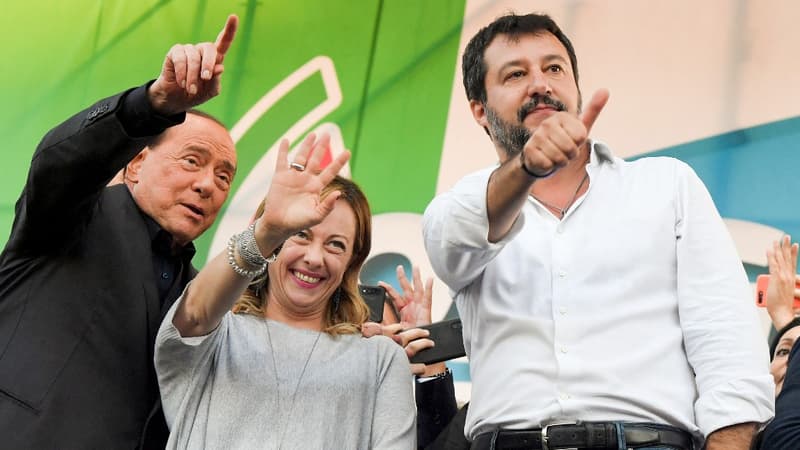For the last ten days, the Italian media have no longer broadcast polls. They are prohibited by the electoral law since September 9. However, the games seem almost done: all the previous polls foresee the victory of Giorgia Meloni this Sunday, during the general elections.
With a good lead over his rivals, his far-right Fratelli d’Italia (“Brothers of Italy”) party, considered post-fascist, has a good chance of leading the next government in a right-wing coalition, where it will be the main force after victory. of the right and the extreme right in Sweden, the eyes are now on Italy.
Almost one in two seats
Last July, the collapse of the coalition government, which included parties from the left, right and center, prompted the resignation of Prime Minister Mario Draghi. Enough to trigger snap general elections this month.
Four years ago, the Fratelli d’Italia party created by Giorgia Meloni obtained around 4% of the vote. Today, it would obtain between 24 and 26% this Sunday, thus becoming the first political party in the country. Such an outcome would above all allow him to claim the post of Prime Minister.
In fact, Giorgia Meloni is at the head of a right-wing and far-right coalition and therefore plans to govern with Matteo Salvini’s Lega (12-14%) and Forza Italia (7-9%), the formation of Silvio Berlusconi’s right. This block would collect between 46 and 48% of the votes in total.
Towards a strong abstention
Behind, the left-wing coalition, including the Democratic Party, lags behind as it is attributed between 22 and 24% of the vote. The 5-star populist movement, led by former Prime Minister Giuseppe Conte and who does not define himself as left or right, would be this Sunday, according to polls, the third force in the country with 13 to 14% of the votes.
If Giorgia Meloni becomes Prime Minister, she will be the first woman in Republican history to hold this position. It will also be the first time that even the distant heirs of fascism have seized power.
The great unknown in these elections remains, however, the participation rate, which could have an impact on the final results. In fact, according to one estimate, 41% of the electorate did not plan to go to the polls.
Source: BFM TV


